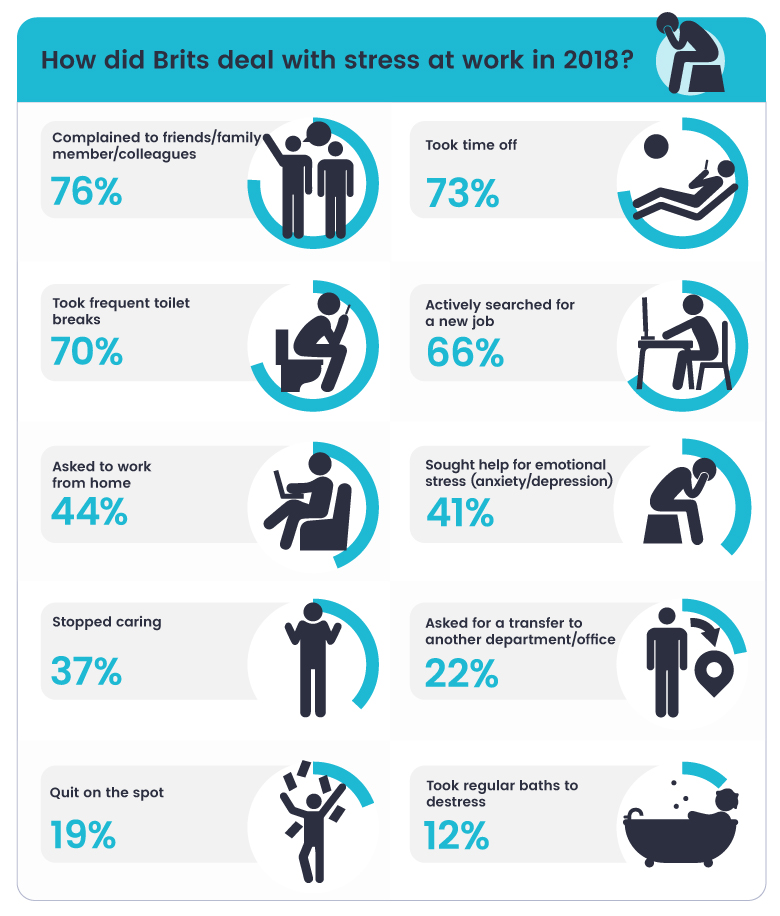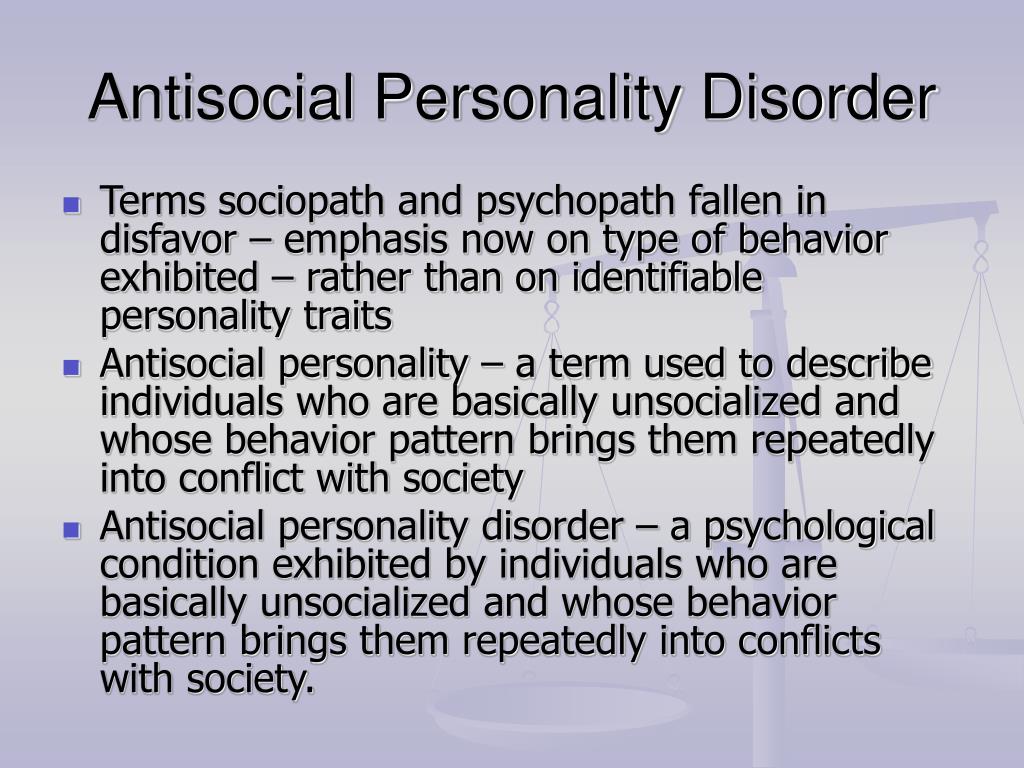How to deal with aged parents
How to Cope with Aging Parents: Difficult Parents Advice
Dealing with Difficult Elderly Parents
As your parents get older, their needs get more intensive, which can add a lot of stress to your already busy life. Coping with elderly parents can be hard, especially when you have your own responsibilities to take care of. You love your parents—but you might not always know how to get them the care they need as they age.
We understand how challenging it is to provide aging parents with everything they need. It’s normal to feel anxious or even frustrated when you and your parents aren’t on the same page. Take a look at a few of these tips we’ve gathered for dealing with difficult elderly parents:
How to Cope with Aging Parents
1. Decide What Matters are Most Important
When you’re dealing with difficult parents, it’s important to choose your battles wisely. Not every problem is worth fighting over, so it’s crucial to differentiate between the matters that truly need to be addressed and the matters that are worth compromising on.
2. Try to Understand What’s Behind Abnormal Behavior
Rather than focusing on your own anger in difficult situations with your parents, try to identify the motivation behind their actions. When you try to understand your parents, you might find that their behavior is actually a result of something deeper.
3. Find an Outlet for Your Stress
Confide in your friends, siblings, or even a care manager to relieve your stress about your parentsis a great tactic for coping with elderly parents. It’s important to have a clear head when you interact with your parents, and having an outlet for your stress will keep you from taking your anger out on them.
4. Set Boundaries
Especially if your parents can’t always control their behavior, it’s necessary for you to decide how much bad behavior is excusable and whether or not a line needs to be drawn. Having a clear understanding of what you will and won’t tolerate will make dealing with difficult parents a bit less overwhelming because you’ll know when to step back.
5. Know Your Own Limitations
One of the most crucial things to remember when coping with elderly parents is that it’s okay for you to say, “No.” You can’t always change your parents’ minds, convince them to act differently, or solve their problems—so it’s important to know your limitations and call for help when you need it.
6. Limit Your Involvement in Caregiving
When coping with aging parents becomes too much, it’s time to look for outside help. Simple solutions like in-home caregivers or assisted living facilities will give you the opportunity to step back from difficult situations and love your parents without having to be their primary caregiver.
7. Plan Ahead
Your parents won’t be able to live alone forever—and if they’re stubborn or difficult, it won’t be easy to convince them to change their lifestyle. Planning for the future allows your parents to be a part of the process as you make arrangements for them as they age.
Is a Retirement Community Right for Your Parent?
When you’re dealing with difficult elderly parents, it’s easy to feel overwhelmed. At the end of the day, all you want to do is love them and provide them the best care possible—even when it’s hard. As you care for your aging parents, remember that there are plenty of resources available to help you out along the way.
At the end of the day, all you want to do is love them and provide them the best care possible—even when it’s hard. As you care for your aging parents, remember that there are plenty of resources available to help you out along the way.
Retirement communities often provide health services options for people who need them. This gives you and your parents some space, while still offering you peace of mind in knowing that your parents are being cared for. If a retirement community is a logical next step for your parents, you can start the process by finding some communities near you!
18 Tips for Dealing With Stubborn, Aging Parents
Have you watched your aging parents begin to decline over the past few months or years? It can feel scary, especially if you are watching them make decisions that you think aren’t the best for their situation. Dealing with elderly parents can also be frustrating, especially if they refuse your assistance or advice. However, if you can find a way to communicate with them that helps them maintain their own autonomy and independence, you can convince them to make the healthiest decisions possible.
Why are your aging parents making risky decisions? Because aging can be scary. Seniors often fear the unknown, including the loss of independence and the potential long-term effects of serious medical conditions. This fear may be why many seniors are resistant to seeking help and are sometimes even secretive about any new symptoms they experience.
There are a lot of factors at play when your parents make the decisions they do. Often, the way you approach them when giving your opinion can make a world of difference. The following tips can help you manage conflict as you navigate what to do with your aging parents in a way that is supportive rather than pushy.
18 General Tips for Dealing With Stubborn, Aging Parents
1. Be persistent.Patience and persistence go a long way toward making conversations productive when dealing with elderly parents. Don’t go in with the expectation that everything should be resolved in one sitting. You will probably have to bring up your concerns to your parents numerous times — so be patient. Bombarding the senior you love with too much information in a single conversation can needlessly trigger their fear of losing control. And if your loved one has dementia or a cognitive impairment, they may be unable to take in too much information at once.
Bombarding the senior you love with too much information in a single conversation can needlessly trigger their fear of losing control. And if your loved one has dementia or a cognitive impairment, they may be unable to take in too much information at once.
Don’t push, nag, or harangue your parents. Giving ultimatums will only get their backs up, and yelling, arguing, slamming doors, and so on could seriously damage the relationship. Instead, empower your loved one by making them a part of every decision-making process. Validate their emotions and show them that you value their opinions.
3. Be sensitive.Criticism and judgment can put your parents on the defensive. Bluntly telling Mom and Dad that they don’t know how to manage their own lives will not win them over. Instead, stick to “I” statements, such as, “I’m feeling concerned because you look like you’re losing weight and I’m worried that you’re not eating enough. ”
”
Productive conversations never happen when everyone is feeling stressed out or exhausted. Make sure you choose to have challenging conversations on days when your parents are feeling relaxed rather than depressed or anxious. That goes for you, too — avoid talking when you feel particularly stressed because your anxiety will only add to their fear.
5. Stay calm.On some level, your parents may be aware that they are facing some new challenges, so avoiding discussions about their future might seem safer to them than admitting to reality. Stating your concerns calmly and speaking with love and tenderness can help reassure them that change will be OK.
6. Seek outside help — for yourself.Dealing gently with stubborn aging parents may not come easily if you yourself feel frightened, helpless, and frustrated. If this is the case, please divert some of your caregiving energy to yourself and get some outside support, be it a meditation group, a counselor, or a support group.
Although you may not have much extra time on your hands, try spending a little more of it with your parents (that is, if the relationship is not a source of conflict). As your parents continue to age, they will likely appreciate a little more attention. Your interactions might even become more harmonious if they know you are prioritizing the relationship instead of squeezing it into a hectic schedule.
8. Ask questions.Instead of talking at your parents, talk to them by involving them in the conversation. Start by asking open-ended questions (e.g., why don’t you want your cousin Mary to come in and fix your meals?). In a best-case scenario, this approach may allow them to reflect upon their situation and conclude that a change really is in order.
9. Come up with solutions.Focus on addressing your parents’ concerns rather than telling them what to do. Commit to doing your research, and if you don’t have an answer, don’t make one up. The goal here is to cultivate trust and foster a spirit of mutual support and cooperation.
Commit to doing your research, and if you don’t have an answer, don’t make one up. The goal here is to cultivate trust and foster a spirit of mutual support and cooperation.
Always focus on the benefits of your proposed solution. For instance, if you see assisted living as the answer, emphasize the variety of social and recreational activities that these communities offer.
11. Bring in other family.Remember, caregiving is a large responsibility, one that you shouldn’t have to take on alone. If you have siblings, schedule a family meeting to talk about your concerns or ask them to talk to Mom and Dad. Just make sure that you see eye to eye on the important issues.
12. Enlist the support of friends.Consider scheduling a family meeting that includes a close friend or neighbor. Sometimes it can be easier to hear the truth from someone outside of the family.
13. Talk to their doctor.
Talk to their doctor.If all else fails, contact your parents’ doctor and let them know about your concern for your parents’ well-being. In the end, a medical professional may be the one person whose advice your parents will heed.
14. Outline the consequences.If your parents are still bound and determined to stay in their four-bedroom house or to keep driving, calmly let them know about the possible consequences of their actions. Don’t frame things in punitive terms or talk to them like they’re children. Instead, remind them that their actions extend beyond the family. “Mom, I love you and want you to be independent, but I also don’t want that independence to come at the cost of hurting someone because of a car accident you cause" can be a potent wake-up call.
15. Don’t count on them changing.Ultimately, there may be nothing you can do to change a parent's mind. Remember, your parents are grown adults who have the right to make their own decisions, and sometimes the best thing you can do is to honor their wishes.
When approaching your loved one, listen not only to what they are saying but also to what they may not be saying. For example, they may be afraid to move to assisted living because they are worried about making friends. They may be resisting visiting the physician because they fear what their doctor may say about their condition. Many times, fear or anxiety is the underlying culprit of their behavior.
17. Accept the situation; don't beat yourself up.It is difficult to watch your loved one face challenges caused by aging, especially if they are not receptive to help. However, you can only do so much convincing and pleading to change their minds or get them to explore new options. Work with your own counselor or support group to accept the situation for what it is and know what you cannot change (and what you can).
18. Treat your aging parents like adults.
Your parents are still your parents, and it can feel jarring to them and to you if you begin treating them like the child in the relationship. Remember that your parents are adults and they deserve to be treated as such. During your conversations, focus on empowering them and giving them plenty of choices and input into every decision.
How to Deal with Stubborn, Elderly Parents — Specific Examples
Anger, Hostility, and Outbursts
If you are met with anger or hostility when you approach your loved one about your concerns, it can feel like a personal attack. However, the more you know about the potential causes of that anger, the more you can not take it personally and get any follow-up care your loved one may need.
Potential CausesIf your loved one has always been a bit cranky or set in their ways, challenges of aging will typically only amplify those traits.
SolutionThe aging process is not easy and can cause frustration in seniors. Having a bit of empathy and putting yourself in their shoes can soften your approach and help you not take any attacks personally. When possible, take advantage of respite care solutions so you can take a break from your caregiving role and re-enter the role with a renewed perspective.
Having a bit of empathy and putting yourself in their shoes can soften your approach and help you not take any attacks personally. When possible, take advantage of respite care solutions so you can take a break from your caregiving role and re-enter the role with a renewed perspective.
Sometimes, anger and stubborness can turn into abusiveness. Here is why that can happen and how to face it in your caregiving role.
Potential CausesAbusive behavior occasionally occurs in older adults. Sometimes, this behavior stems from a mental health issue that your loved one has lived with for years. In this case, you may already have some coping skills in your personal mental health toolbox that can help you navigate the situation. However, if abusive behavior is new, this can indicate a change in mental health or cognition.
SolutionTry explaining how their behavior makes you feel. You can also leave the situation as long as your loved one is safe before you go. Finally, consider respite care to give you the break you need and deserve.
Finally, consider respite care to give you the break you need and deserve.
Refusing personal care, especially showering or bathing, is quite common in older adults, especially if they are living with Alzheimer’s disease or another type of dementia.
Potential CausesThere are a variety of reasons why your loved one may be refusing to shower. It might feel too vulnerable or scary for them, and declining vision or cognition can only increase that fear.
SolutionAs with anything dealing with dementia, focus on working with your loved one’s physician to determine what could be causing the resistance to showering. It could be a mix of anxiety and depression, or it could be a part of their dementia progression.
Consider helping your loved one remain modest in the shower by using towels to maintain privacy. Waterless shampoo and soap is also a good way to maintain good hygiene while skipping a shower every once in a while.
Cognitive decline is often the reason behind seniors making offensive comments or using inappropriate language. However, it can still be jarring for adult children or caregivers to hear, even if they’re aware of the source.
Potential CausesWhen seniors begin using new inappropriate language or offensive comments, it is often because they are in pain, frustrated, or reaching a new stage in their cognitive decline. A sudden personality change could also point to an infection.
SolutionIgnoring the behavior is sometimes the best solution. You can also call out the behavior and say you do not like it when they do that. However, if your loved one has dementia, it is important for you to note that they will likely not be able to remember your direction or consequences.
Paranoia, Delusions, and HallucinationsIt is startling to watch your loved one experience delusions or paranoia.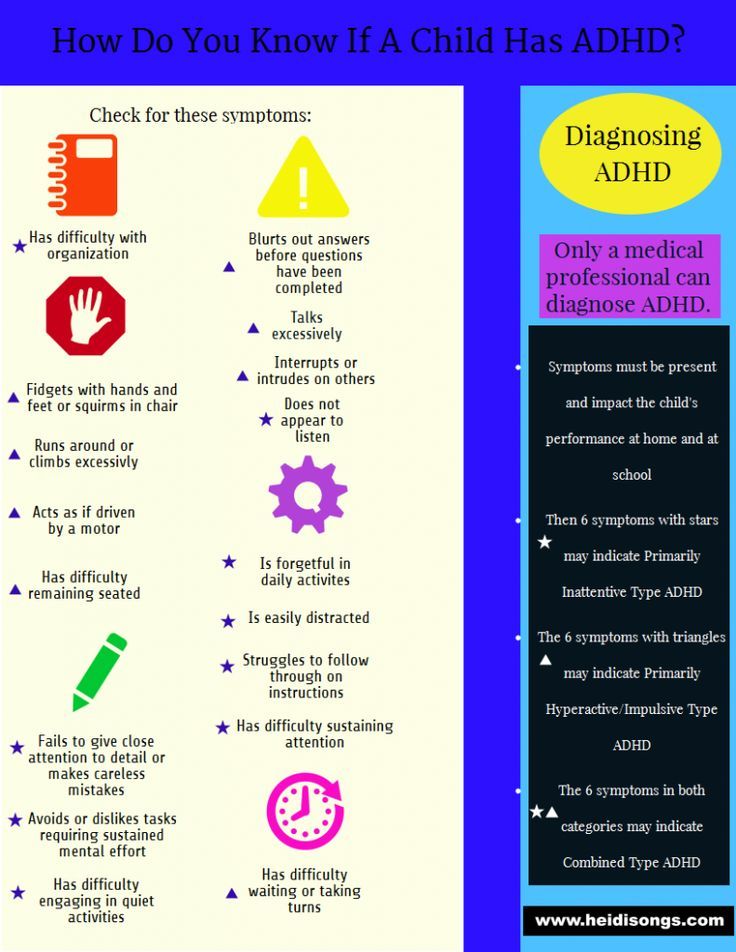 Cognitive decline is often the reason why it happens, but it is also possible that your loved one is experiencing a medication side effect.
Cognitive decline is often the reason why it happens, but it is also possible that your loved one is experiencing a medication side effect.
Medications can cause paranoia, hallucinations, and delusions. Be sure you speak to your loved one’s physician or pharmacist to talk about these types of side effects. Dementia and infections, such as a UTI, can also cause this type of behavior.
SolutionWork with your loved one’s medical team to discover the underlying cause of the delusions or paranoia. Once you are able to discern if it is a dementia side effect, an infection, or a medication issue, you can begin to make the appropriate changes.
HoardingWhen you hear the word hoarding, it is easy to think of the seriously dangerous situations that make it into TV shows. However, hoarding doesn’t have to happen on a cinematic scale to be something serious that must be contended with.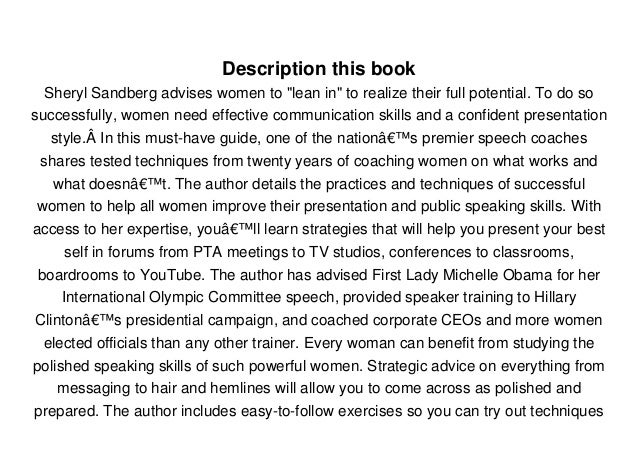 It can range from keeping clutter in a drawer or refrigerator to creating a fall hazard with boxes lining the hallway.
It can range from keeping clutter in a drawer or refrigerator to creating a fall hazard with boxes lining the hallway.
The compulsion to hoard or collect items can stem from dementia as well as anxiety. It can point to a need for control or a desire to save memories, or it can just as easily be an instinct caused by cognitive decline.
SolutionHave small cleanout days once a week when you go into your loved one’s home and quietly remove items. Be sure to check the fridge and cabinets if your loved one hoards food because doing so can cause sanitation issues in the long run. If your loved one has dementia, creating a rummage drawer or box full of small items can often dampen the urge to hoard.
Refusing to Accept CarePotential CausesIf your loved one simply refuses to let you help at all, they are likely feeling embarrassed about their declining health or increasing needs. They may also not want you to take on that burden.
They may also not want you to take on that burden.
Speak candidly with your loved one so you can find ways they will let you help. It can also be helpful to get your loved one’s physician and counselor involved in the conversation. In many cases, your loved one may accept help from others more easily than from you, so begin to look at home care or senior living solutions that will provide the help they need.
Extreme Frugality or OverspendingPotential CausesIt is common for older adults to worry about outliving their money, especially when they are on a fixed income. Unfortunately, this anxiety can sometimes lead to dangerous behaviors such as refusing to turn on the air conditioning or not filling certain medication prescriptions.
SolutionWork with your loved one and their financial advisor to develop an “essentials” budget that includes items that keep them safe. If you feel that your loved one is making poor financial decisions because of dementia, get their physician involved.
If you feel that your loved one is making poor financial decisions because of dementia, get their physician involved.
When it comes to learning what to do with an aging parent, turning to experts can often be the best first step. Senior living communities, for example, are staffed with team members who have worked with older adults and their families for many years. These team members are there to educate you about senior health topics, offer communication tips, and provide outstanding care for your loved one as they need it.
Ready to learn more? Download our free resource, “The Journey to Senior Living: A Step-By-Step Guide for Families,” to begin learning more about senior living and how it might be the solution to providing your aging parent with the support they need without compromising their independence.
10 rules for communicating with aging parents: oh, I wish I had known 20 years earlier...
Learn from experience!
It is difficult for you to communicate with old people, you are interested? Does it happen that in a conversation with them you get angry and annoyed? Why is this happening? Perhaps because they constantly criticize, give advice and interfere in your life? And what to do with it?
The artist Alexander Galitsky knows the answer to this question, in the past he was an art director in a large company. Now Alexander works in a nursing home, where he leads a wood carving circle. Most of his students are over 80.
Now Alexander works in a nursing home, where he leads a wood carving circle. Most of his students are over 80.
In the book “Mom, Don't Cry! How to learn to communicate with elderly parents and at the same time not go crazy yourself ”Alexander Galitsky explains to young people how to properly communicate with people of advanced age.
Here are the basic rules for communicating with the elderly, which he deduced over many years of working with them.
1) Never argue with the elderly, do not try to convince them of something
This is impossible to do. If you continue to argue, you will only spoil the relationship. You can't fix them, you have to put up with it. Try to change yourself first. Change your attitude towards what is happening.
When you are in a situation, you see only one side of the coin: how capricious and harmful your old people are, how much inconvenience they cause... Try to put yourself in their place - and you will see that they feel very bad.
“These are their last years. They are afraid of illness, their own weakness, boredom, their own uselessness and uselessness, death, in the end. So much work is worth getting up in the morning, doing the usual things that earlier, in their youth, they were given easily and simply.
And especially oppressive is the realization that it won't get better, it will only get worse.
2) Take matters into your own hands
Do you have elderly parents and they annoy you? Of course, it is not easy to come to terms with what they have become. After all, you remember them completely different! So it's time to take control into your own hands. How to do it?
Imperceptibly change the vector of relationships: stop communicating with your parents breathlessly, stop making excuses, explaining, playing the role of a child. This is a long and complicated process. Be patient and use your sense of humor.
“A laughing old man is not dangerous. With the help of a joke - any, not even the most successful one - you can defuse almost any dangerous situation that arises in communicating with an elderly person.
With the help of a joke - any, not even the most successful one - you can defuse almost any dangerous situation that arises in communicating with an elderly person.
Gradually take over the reins without pressure. To the questions of parents “What did you do?”, “Where were you?” cannot be answered. Instead of answering, joke or ask counter questions. It's confusing.
Don't get into conflict with old people - it's useless. Even when it comes to human safety and health, do not make your claims, look for a different approach.
3) Don't remind old people about painful things
Old people really appreciate everything that in one way or another can distract them from unpleasant physical sensations, bad thoughts and experiences.
Therefore, if you want to please your elderly parents, do not give them a pressure cooker, coffee maker, washing machine, etc. Do you think that such a practical gift will certainly bring them joy? Will not deliver.
If you really want to please your elderly parents, give them your time. But only, of course, not some empty, boring and overwhelming. Choose a quality, bright, unusual time for a gift.
Also, the more time you spend with your parents, the longer they will live. You can read about such an interesting fact at this link.
4) Accept old people as they are
There is only one way to improve relationships with elderly parents. Understand and accept one simple fact: from now on, your relationship will only be so - complex and contradictory.
Give old people the opportunity to be who they are. Respect their children's choice. Make stupid requests. Don't take their ideas seriously.
5) Put yourself in their shoes
We will all grow old sooner or later. Someone already at a young age feels like an old man. Elderly relatives got closest to the final stop. You will get there too - it's just a matter of time.
Therefore, try to consider yourself in elderly parents.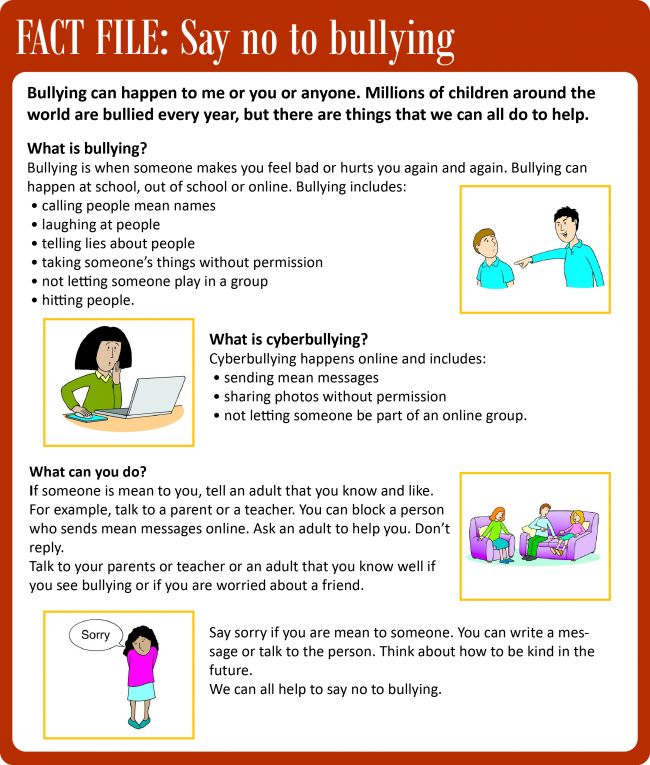 After all, you, too, someday find yourself in their role. Thinking about it is scary, but over time, this thought brings relief.
After all, you, too, someday find yourself in their role. Thinking about it is scary, but over time, this thought brings relief.
Remember: communication with old people is, in a sense, communication with oneself, compassion and love for them is love for oneself in old age.
6) Goodbye
Start every day with a clean slate. Do not drag yesterday's grievances into today. Remember: your parents are the people closest to you. "Okay, let's go" - that's the motto you need to adopt.
Don't carry the negativity any further. Forget troubles. Don't argue with old people. Greet the new day - and your old people - with a smile.
7) Don't blame yourself
"I missed something" is the thought that comes to the mind of many middle-aged people when they think about their relationship with their parents.
“But we are not to blame. Time is to blame, - says Alexander Galitsky. – The reverse process of aging is always depressing.
Remember the joke? The pessimist says that it can't get worse, the optimist says that you certainly can! This is what is happening before our eyes.”
But we are not to blame for the aging of our loved ones.
8) Do not expect pleasure from communication
Communication with an elderly person is a matter that requires experience and knowledge. It is especially difficult to talk face-to-face with an old man. Before the conversation, tune in to the fact that it will not be easy. Do not expect pleasure from such a conversation - then you will not be disappointed.
“When I come to class with my students, I know that my fatigue does not depend on time. I can get tired with one of them in 10 seconds. But I'm ready for it. I understand why I get irritated, what makes me angry.
Remember - old people seem to themselves worthless creatures. And interest in them from our side is a gift for them!” writes Galitsky.
9) Show genuine interest in old people
“Once one of my students, she is also over 90, a very pessimistic woman, did not come to class. I called her to find out what happened. She was amazed: “Are you calling me?! I'll be right back." She was surprised that someone needed her, that they remember her, ”says Alexander Galitsky.
I called her to find out what happened. She was amazed: “Are you calling me?! I'll be right back." She was surprised that someone needed her, that they remember her, ”says Alexander Galitsky.
Older people find it difficult to believe that someone needs them. It is difficult for them to look at themselves in the mirror, they do not like themselves. Your interest in them will help your relationship.
10) Study the specifications of your old man
According to Alexander, we get annoyed in the presence of old people because we don't understand one simple fact: the person next to us is different. He sees poorly, hears poorly, walks poorly, not to mention what is inside. He only looks like us. But time flows differently.
“Understand: old people are people who live in a different coordinate system,” says Alexander.
Do you agree with the author of these tips? Do you have anything to add to this list?
How to learn to communicate with elderly parents and not go crazy - Pro Palliative
Why do they use the old and do not buy a new one? Why do they keep talking? What to do if they flatly refuse medical assistance? Where do you get the strength to communicate with them? Can you talk to old people about death? How can you help them live better?
Writer and artist Sasha Galitsky, who has been working as an art therapist in a nursing home for about twenty years, answers these questions in his book "Mom, Don't Cry" (Zakharov Publishing House).
***
The speed of sound is 20 years. Because what the parents said, you understand 20 years later. But even 20 years later I didn't understand. I was 45 when my mother died. 47 when dad passed away. We had a difficult relationship for the last few years of their lives. No, of course, I helped with money and called, as expected, once a week. But when they were gone, I was still left with a question to which I had no answer. Why was it that I, an adult, intelligent, educated person who sincerely loved my parents and wished them well, nevertheless could not provide them with a happy old age, although I really wanted to and could very well?
I invited them to come to Israel with me. And he tried his best to make them feel good. And it was good - the sea, the sun, cheap fruit. And they admired it all. And then, having admired, they went back home. Where fruits are expensive and medicine is bad and it gets dark early and winters are cold and snow and I'm gone. Why?
Why is it so difficult for us to communicate with elderly parents? Why do all our efforts to establish normal relations with an elderly mother or an elderly father most often end in quarrels and mutual tension?
It's strange, considering that we know them as much as we know ourselves. What are we doing wrong? Or, in principle, this task is impossible?
What are we doing wrong? Or, in principle, this task is impossible?
A year after my mother's death, I left a good, prestigious job and went to work in a nursing home. I got a job as a teacher of a wood carving circle. This work gave me the opportunity to communicate daily and in large quantities with older people, trying to understand them and learn how to communicate with them. I've been doing this for almost fifteen years now. Here's what I've found out over the years.
Why do they have to piss us off? Why do they constantly give us advice and interfere in our lives? Why are they saving? Why are they talking so much? Why don't they like anything new? All these questions, which seem to us rhetorical, actually have absolutely specific and absolutely reasonable answers. Even the age-old question has a simple and understandable answer: why do old women sit on a bench and look at passers-by? Believe it or not, they have a good reason for doing so.
If I had known these answers 20 years ago, my relationship with my parents would have been different and their old age would have been different too. But I can't get my parents back. That is why I am writing this book for those whose parents are still alive. For those who still have the opportunity to learn how to communicate with them. And don't go crazy on your own. I now know how to do it. Too bad I didn't know before.
But I can't get my parents back. That is why I am writing this book for those whose parents are still alive. For those who still have the opportunity to learn how to communicate with them. And don't go crazy on your own. I now know how to do it. Too bad I didn't know before.
Drawing by Sasha Galitsky. Illustration for the book "Mom, don't cry!"
Why do they have to piss us off?
I'll tell you what, it's easier for me than for you. Yes, I talk to old people every day for eight hours. You probably don't. Yes, I have dozens of them. And you have two at best. But! And this is a huge BUT. Those old people with whom I communicate, I have never seen others. I met them when they were old. I don't remember them when they were young. I don't remember them when they were young, and I don't remember myself as a child next to them. They didn't take me by the hand to the kindergarten, didn't wipe my ass, didn't feed me, didn't give me drink, didn't scold me, and I didn't beg from them for a set of flat red plastic Chapaevs. I don't have a history with them. And you have a backstory. And so it's much easier for me. I have nothing to compare.
I don't have a history with them. And you have a backstory. And so it's much easier for me. I have nothing to compare.
"Mom, don't eat so much, you're getting fat!"
"Dad, you better not drink, you know!"
“Mom, when will you finally master the computer?”
“Daddy, can I put you in the pool? Will you swim?"
“Mom, what are you talking about?!”
“Let a person live in the past” 12 rules to help care for people with dementia from care expert Olga Vygovskaya
A friend of mine discovered by accident that her 85-year-old mother was a racist. Mom came to visit her in a small American city and a couple of days later publicly expressed her delight to her daughter about the fact that there were “absolutely no blacks” in the city. Mom, however, used a different word - one that sounds the same in Russian and English. An acquaintance told me that she was horrified by her discovery and spent two days in a furious attempt to convince her mother. And only then I thought - why, in fact, she does this?
And only then I thought - why, in fact, she does this?
Even if she could explain to her mother the depths of her mother's terrible delusions, what difference would that make? How will this increase mother's comfort and the quality of time left for mother? No way. And then why bother? Out of principle?
Have you ever noticed that no old people annoy us as much as our own? This is because all old people are just old people. And ours are aged parents, whom we remember differently, young and full of strength, and who until relatively recently played a completely different role in our lives.
We are not prepared to allow them to become decrepit, stupid and childish. We want to be proud of them. And so we are trying to get them to exercise, eat right, walk more, develop memory and realize the depth of the fallacy of their outdated views on life in order to give us the opportunity to write posts on social networks about their amazing successes.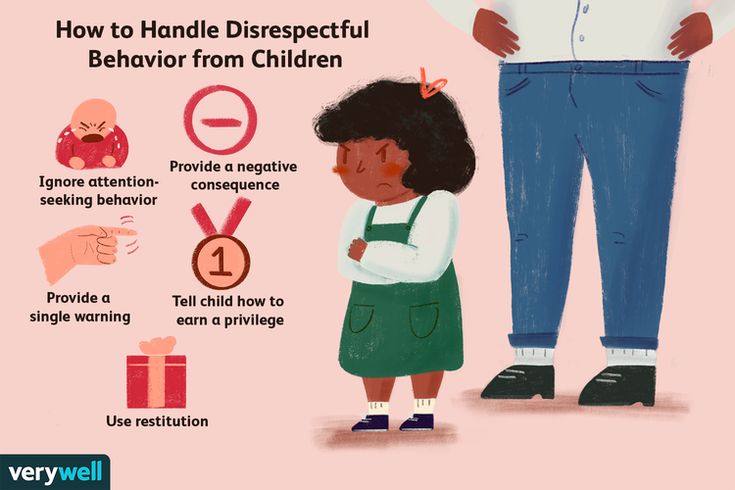 Every day and every hour we do our best to keep them from getting old. And we spend a huge amount of energy and effort on this hopeless cause. Don't talk nonsense. Dress brighter. Use Internet. Don't sit at home. Mom is the most beautiful. Dad is the strongest.
Every day and every hour we do our best to keep them from getting old. And we spend a huge amount of energy and effort on this hopeless cause. Don't talk nonsense. Dress brighter. Use Internet. Don't sit at home. Mom is the most beautiful. Dad is the strongest.
The main reason for the vast majority of our conflicts and quarrels with elderly parents is that we are not ready to accept what time is doing to them. Time spoils them. We quarrel with them, trying to "fix" them. But old age is an irreversible disease.
Not one - I emphasize, not one - of the huge number of old, elderly old people with whom I have had the good fortune to communicate daily for the past two decades, is in my opinion a completely adequate person - at least from the point of view of the norms adopted for our age.
Elderly people live in coordinate systems different from ours. There is only one way to improve our relationship with them. One and only way to make this relationship easy and simple. This way is to understand and accept that this relationship will never be better. And easy and simple, too, will never be.
This way is to understand and accept that this relationship will never be better. And easy and simple, too, will never be.
It is necessary to find the strength in oneself to give the old people the opportunity to be what they are. Respect their children's choice. Make stupid requests. Don't take their ideas seriously. Accept strange demands. Do not argue with them when they are talking absolute and obvious nonsense. Because - why? What's the point?
— Mom, what kind of coffee do you want?
- Instant, the cheapest!
- Good.
After all, our task is not to make us proud of them, but to make the time remaining for them as comfortable and enjoyable as possible. These are very different tasks.
Spiritual testament: how to pass on your experience to loved ones About the practice of writing letters in which a person can summarize his life, give parting words and share lessons with those who remain after his death
My father, by the way, was the best wizard in the world. I am not lying. I still remember my mother’s voice from the kitchen: “Sasha, stop playing with the ball in the apartment!” And the ball flying off into a heavy vase, which slowly, inexorably falls on the black glass of a Czech sideboard. And the roar of breaking sideboard glass, instantly covered with a web of cracks. I remember my mother’s words: “Dad will come home from work - you yourself will explain to him!”
I am not lying. I still remember my mother’s voice from the kitchen: “Sasha, stop playing with the ball in the apartment!” And the ball flying off into a heavy vase, which slowly, inexorably falls on the black glass of a Czech sideboard. And the roar of breaking sideboard glass, instantly covered with a web of cracks. I remember my mother’s words: “Dad will come home from work - you yourself will explain to him!”
I remember how my mother and I went somewhere, and it was winter, and I was afraid to return, because I imagined that dad had already come from work, took off his coat, went into the living room and found broken glass. I represented the full force of his justified anger. I didn't know how to explain to him about the ball. And best of all I remember how my mother and I returned home. And how I, expecting a well-deserved scolding, discovered that the broken glass on the sideboard was intact. And I remember a laughing father. Dad, a Soviet rationalization engineer, somehow managed to turn the broken glass over in such a way that the pride of the domestic instrument making of the Riga radiol covered up all the disgrace I had made.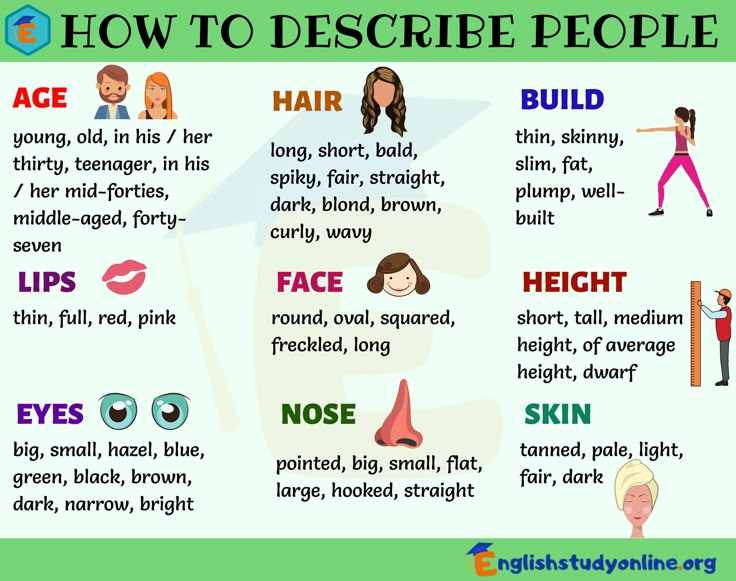 And I didn't have anything!
And I didn't have anything!
Remembering all this horror, I then looked for a long time from time to time with one eye into the gap under the radiogram to see how wildly scary it was. And every time I rejoiced at my father's magic again. My wizard dad died in Moscow from a heart attack in 2004. By this time he had already had two heart attacks. As an engineer-innovator, he tried to fix the work of the heart with the help of pills. Dad drew up what seemed to him to be life-saving schemes and wrote down the exact time of taking the medicines and their doses on a paper tape. He flatly refused to go to the hospital.
Even when he was just sitting in an armchair and could not lie down, he was suffocating.
Hearts suffocate.
I don't know why I didn't send him to the hospital by force against his stupid old will. Probably because in the depths of my soul I really wanted everything to work out with his own heart as amazingly beautiful as with the glass of a Czech sideboard. And so that he remains a magician, capable of continuing to amaze me, a child, with miracles inaccessible to my understanding. A magician, not a frightened old man who fell into childhood. I agreed with him that, well, if there is another attack, then it will be necessary to go to the hospital. The attack happened a couple of days later. Father was taken away in an ambulance. He died on the way.
And so that he remains a magician, capable of continuing to amaze me, a child, with miracles inaccessible to my understanding. A magician, not a frightened old man who fell into childhood. I agreed with him that, well, if there is another attack, then it will be necessary to go to the hospital. The attack happened a couple of days later. Father was taken away in an ambulance. He died on the way.
“We knew that your father was a respected person, and we did more than usual,” the doctor said to me as a consolation when I came to get my things.
Drawing by Sasha Galitsky. Illustration for the book "Mom, don't cry!"
How to please old people?
Tell me, do you often meet happy old people? Yes, they are almost non-existent in nature.
Every Friday I meet Eliyahu in the hallway of the nursing home. Now he is almost 101 years old.
— How are you, Eliyahu?
- Very bad! Everything hurts and is boring!
Eliyahu, in his 100 years, managed to study at the Warsaw University, and run from the Nazis around Europe, and direct the home of homeless Polish children in the forties, and become a famous microbiologist in the sixties. His life was full of impressions. And now? People need new experiences for pleasure. And the old people miss them. "Everything hurts and is boring."
His life was full of impressions. And now? People need new experiences for pleasure. And the old people miss them. "Everything hurts and is boring."
Hello! Felix, a retired neighbor, tells me from the second floor. — Where are you?
— Daughter to pick up from the station.
— Can I go with you too?
— No, don't. I'm in a hurry.
In half an hour we return with our daughter, the door of Felix's apartment is open, Felix himself is standing in the doorway and waiting - what if we can talk again? Felix is bored.
Impressions are what old people miss the most. And that's what they value the most.
Not so long ago, in the nursing home where I work, my grandfather drowned in the pool. Grandmother, who lives opposite the pool, put a chair on the balcony, sits and looks at the work of the ambulance team, which catches the dead.
— Go away! You don't have to look at it! the orderlies shout to her from below.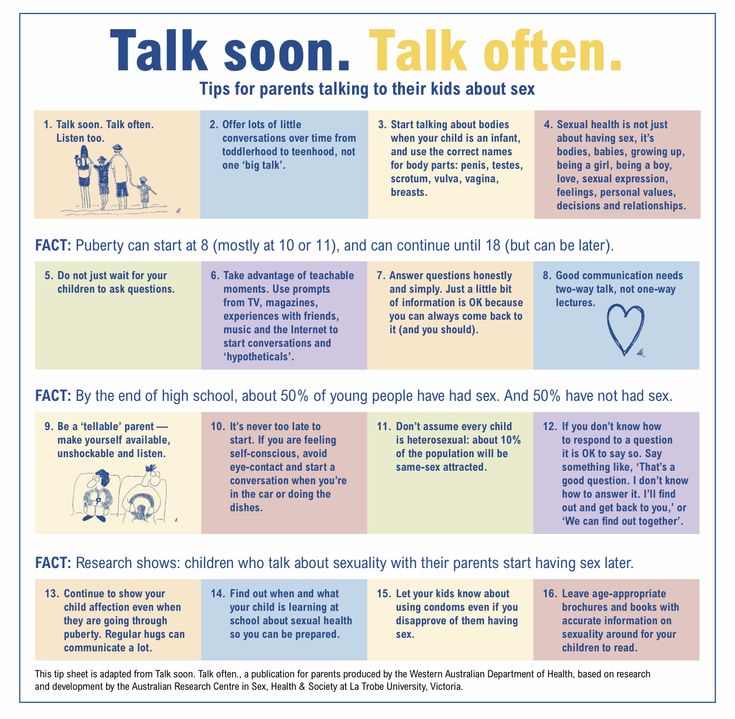
— Why? I'm interested.
And a discussion with friends later:
— How much water spilled out of it, did you see?!
Old people have little good in their own, personal, individual life. Pain, physical discomfort, fatigue, fear of the future. All these troubles cannot be overcome, corrected or cured. You can only get away from them.
Old people appreciate very much everything that in one way or another can distract them from unpleasant physical sensations, bad thoughts and experiences. Therefore, if you want to please your elderly parents, do not give them a pressure cooker, a coffee maker, a washing machine, or any other, from your point of view, absolutely necessary object in the household, the appearance of which, as you think, will certainly bring them joy.
Will not deliver.
If you want to please them, give them your time. But only, of course, not some empty, boring and overwhelming.
Choose a quality, bright, unusual time for a gift.
One of my friends could not guess with a birthday present for an elderly mother. Everything he tried caused almost no reaction from his mother. Gold earrings are expensive. Lovely cashmere sweater. Spa day. All this was tried and did not bring the desired result. Mom politely thanked, but clearly did not feel any joy from the gift. Until one day, circumstances did not turn out so that on my mother's birthday, my friend was on vacation with friends.
He didn't worry about the gift for his mother beforehand and was very worried about it. And in the end he did. Invited friends to dinner at a restaurant in the port, by the sea. I connected my mother via Skype, with a video. And each of the guests took turns talking to her, saying some kind words. This went on for over an hour. The effect was amazing! Mom was delighted - such as no spa, no earrings, no sweater she had come close to calling.
“I’m happy that I have you” Monologue about life next to a person with dementia
Some of my other acquaintances decided to really celebrate the birthday of my grandmother, who was turning seventy-six. We bought her a beautiful smartphone as a gift. But before handing it over, they asked the grandmother to also contribute to the planned celebration and cook some dishes especially loved by the whole family. It was necessary to prepare for a long time and seriously. Grandmother spent the whole day in the kitchen, of course, everyone helped her - both grandchildren and children. In the evening, when the guests arrived, the grandmother was given her gift - a smartphone ... which caused absolutely no reaction in her.
We bought her a beautiful smartphone as a gift. But before handing it over, they asked the grandmother to also contribute to the planned celebration and cook some dishes especially loved by the whole family. It was necessary to prepare for a long time and seriously. Grandmother spent the whole day in the kitchen, of course, everyone helped her - both grandchildren and children. In the evening, when the guests arrived, the grandmother was given her gift - a smartphone ... which caused absolutely no reaction in her.
But when a year later, before her next birthday, my friends asked my grandmother what she would like this time, it turned out that the only thing she dreams of is to spend the whole day in the kitchen again with the whole family, for common cooking, like last year.
Old people appreciate everything that distracts them from their own not very cheerful state. And therefore they use absolutely every opportunity they have to switch their attention from their inner world to the outer one.

Have you ever wondered why old women always sit on the bench and look at the passers-by? Or why older people are always so interested in other people's affairs? Or why tourism is so popular among those over 70?
Well, now you know.
Drawing by Sasha Galitsky. Illustration for the book "Mom, don't cry!"
The most difficult and most important thing
This is the most important thing that is written in this book. It is also the most difficult. And the most important.
Listen carefully. No matter what happens, no matter how hard it is, no matter what insults our elderly parents voluntarily or unwittingly inflict on us, tomorrow will be a new day. And until tomorrow, you need to learn to forget everything that happened today.
We don't carry grudges from day to day. We throw them out of our heads, out of our hearts, out of our memories, and simply forget them. And we start a new day of relationships with a clean white slate.